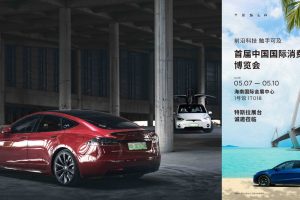- 🚗 Tesla’s market share in Sweden increased to 8.5% despite a strike by pro-union individuals.
- 📈 In the electric vehicle sector in Sweden, Tesla holds a 23.3% market share, ahead of Volvo and Volkswagen.
- 🚙 The Model Y is overwhelmingly popular, accounting for 80% of Tesla’s sales in Sweden.
- ⚡ The Model 3 is the sixth best-selling EV in Sweden but remains the second best-selling sedan.
- 🔮 Analysts are optimistic about Tesla’s ability to hit 1.8 million deliveries for the fiscal year 2024.
- 🤖 Tesla’s future growth involves autonomous technologies, like Robotaxis and AI advancements.
In recent years, Tesla has firmly planted its flag in the challenging yet promising frontier of the Scandinavian electric vehicle (EV) market. Sweden, known for its commitment to sustainability and innovation, provides a perfect backdrop for Tesla’s expanding market share, which has been achieved despite various challenges, including a notable strike by pro-union individuals. This article delves into Tesla’s performance in Sweden, the popularity of its models, and the company’s future growth fueled by ambitious technologies.
Navigating Market Challenges to Achieve Growth
Tesla’s ability to achieve a market share of 8.5% in Sweden speaks volumes about the brand’s resilience and appeal. Despite a strike by pro-union individuals, Tesla’s sales have remained robust, suggesting a strong consumer preference for its vehicles. This scenario highlights a pivotal lesson in market dynamics: quality products often speak for themselves, transcending external and internal challenges alike.
Tesla’s Dominance in the EV Sector
In the broader spectrum of the electric vehicle sector, Tesla commands a 23.3% market share, placing it ahead of notable competitors like Volvo and Volkswagen. This dominance is not just indicative of Tesla’s advanced technology and reliable performance but also reflects the company’s strategic efforts in appealing to eco-conscious consumers. Sweden’s market, characterized by sustainability and innovation, seems to align perfectly with Tesla’s vision and product offerings.
The Rising Popularity of the Model Y
The Model Y stands out as the flagship model in Tesla’s Swedish lineup, astonishingly accounting for 80% of the company’s sales in the country. This model’s success can be attributed to its versatility, cutting-edge technology, and the general shift towards sustainable transportation solutions. Its popularity not only bolsters Tesla’s market share but also demonstrates the brand’s ability to cater to local consumer preferences effectively.
The Model 3’s Competitive Position
While the Model Y takes the lead, the Model 3 remains a formidable contender in Sweden, securing the position of the sixth best-selling EV and the second best-selling sedan. This model continues to attract buyers with its sleek design, affordability, and high performance, cementing its place in a competitive market.
Looking Ahead: Ambitious Growth and Technological Innovations
Tesla’s trajectory for the fiscal year 2024 looks promising, as analysts project the company to meet its ambitious target of 1.8 million deliveries. Such a milestone, amidst the shifting sands of the global automobile industry, would underscore Tesla’s operational excellence and market foresight.
Embracing Autonomous Technologies
Tesla’s future growth is anticipated to revolve around groundbreaking advancements in autonomous technologies, such as Robotaxis and AI. With potential to redefine personal and shared mobility, these innovations are set to play a crucial role in the next phase of Tesla’s growth narrative. By paving the way for autonomous vehicles, Tesla is not merely adapting to industry changes but is actively shaping the future of mobility.
Conclusion
Tesla’s sustained growth in Sweden is a testimony to its robust strategy, superior technology, and unwavering consumer trust. As the company continues to innovate and expand, its influence in the global EV market only grows stronger. Moving forward, Tesla’s ability to integrate autonomous technology and meet delivery expectations will be critical in fortifying its market position and pioneering sustainable transport solutions.





